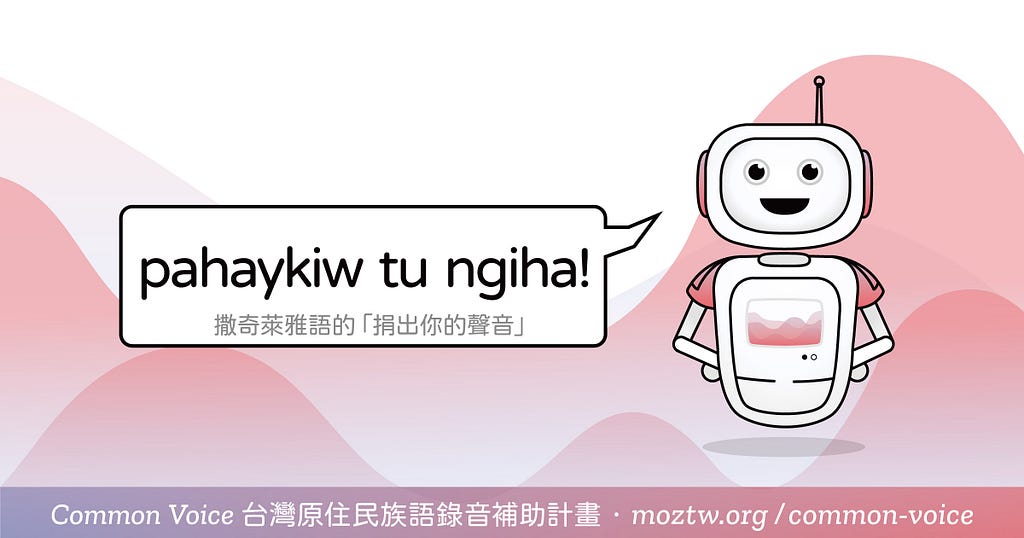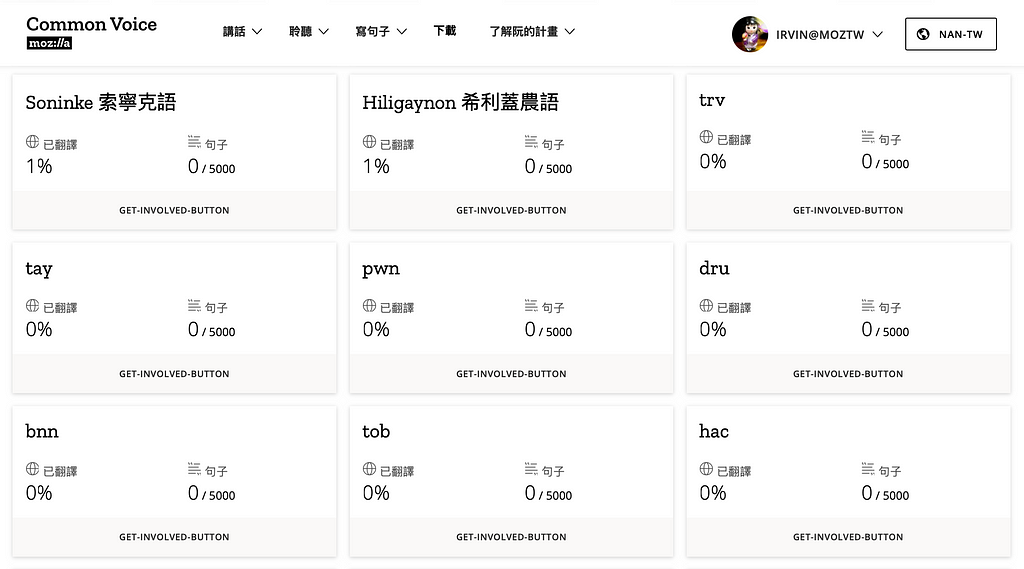
摩茲工寮成果報告 — 2014~2025
11 Years of MozTW Space — Mozilla Community Space Taipei, a brief performance report
tl;dr 摩茲工寮在 2023~2025,三年間共有 567 場開放文化活動及聚會,合計超過 5,200 人次到訪,平均每月使用率為 15 天。自 2024 年起,空間由社群支持者小額資助,至今的財務結算為「負11萬元」。歡迎參考行事曆 cal.moztw.space 自由來訪,或於 apply.moztw.space 填表免費借用。
This is the updated version of this report from 2023. 參考 2023/6 的前期報告。
Download the full slides 下載完整簡報。
工寮營運報告直播分享錄影
https://www.youtube.com/watch?v=txgBJuI1HCU(影片前方約三分鐘在後製時稍微剪到了)
https://medium.com/media/c3ed02e4226c395b16ab52b773ed0994/href基本介紹 Brief Intro
Mozilla Community Space Taipei, AKA “MozTW Space”, “摩茲工寮”, is an event / meeting / co-working space and shelter for the local Mozillians, open-source contributors, and civil-society hackers.
It is the first of its kind, volunteer-led Mozilla space. The Taipei spaces were funded by the Mozilla Participation Team before 2023, and managed by local Mozilla volunteers (Mozillians).
Here, I will provide a brief update on the community space.
摩茲工寮是 Mozilla 與開放原始碼、開放資料、開放文化,以及公民駭客的基地。台北的摩茲工寮,是首個由 Mozilla 資助(2014~2023)成立的國際志工空間。
以下我將會分享摩茲工寮至今的相關數據。

MozTW, Mozilla 台灣社群 (Mozilla Taiwan Community)
The Mozilla Taiwan Community (MozTW) is the local volunteer community for Mozilla. We have contributed to localizing, promoting Firefox, Mozilla, and open culture projects since 2004.
MozTW maintained an online product portal and forum, hosting online / offline events, and engaging with other Asia Mozillians and open-source hackers.
MozTW 是在地的 Mozilla 志工社群。我們自 2004 年持續在翻譯及推廣 Mozilla、Firefox 及開放文化上貢獻至今。
MozTW 的主要任務是維護線上的 Firefox 產品網站及討論區,及舉辦 線上線下活動,並與各國 Mozillians 與開放文化志工與駭客交流。
工寮緣起 History of MozTW Space
The Mozilla Community Space initiative was raised by William Quiviger in 2013, and sponsored by the WPR team. We started the first experimental space in Taipei in the spring of 2014.
After April 2016, the space project transitioned to the Participation Team, supported by Brian King. In February 2017, it continued with the Open Innovation Group (later Community Team), with the help of George Roter and Konstantina.
Mozilla had sponsored the community space until December 2023 and had transitioned to an entirely local, volunteer-funded mode since 2024.
Mozilla 社群空間專案最早由 William Quiviger 於 2013 年發起,台北作為第一個實驗空間,於 2014 年春天成立。Mozilla 持續贊助摩茲工寮至 2023 年底,自 2024 年起轉由本地捐款支持。

兩次喬遷 Location Moved
The first Taipei community space was established in a basement on Dehui Street, northern Taipei, in May 2013 and relocated to Bade Road, the third floor of an apartment building, in November 2014.
After 10 10-year stay in the Guanghua Computer Market district, we successfully moved to the third place in November 2024. The new venue is situated in a commercial elevator building and is conveniently accessible 24/7. It also offers easy access, being close to Taipei Main Station and Ximen.
第一代的摩茲工寮成立於北市中山區德惠街的 CLBC 地下室空間。2014 年 11 月搬移到八德路上,光華商場旁公寓三樓的第二代場地。十年後,我們再次於 2024/10 搬遷到重慶南路現址。
第三代工寮空間稍小,但位於較無障礙的電梯大樓,具儲物空間,租金也較二代稍低。位置在台北車站、西門與總統府的中間,交通方便,更加便利外縣市的朋友前來。

Keyholders
MozTW Space is co-managed by “Keyholders” — 18 local Mozillians, Mozilla volunteers. Keyholders are all vouched Mozillians, have the same privilege, and can freely use and sponsor the space for events of other communities.
When applying for the position, individuals must be recommended by one of the current Keyholders and countersigned by at least 10 percent of frequent visitors within the past 3 months. The threshold represents the community’s support for the applicant.
摩茲工寮「Keyholder」共同管理。現有 18 位來自多個社群的 Keyholders(及九位畢業生)。Keyholder 需經提名,並通過常態使用者投票通過門檻,以取得資格。所有人具有平行同等的權限,可以自由進出及協助其他社群訪客使用工寮空間。

AI 流程補助成效追蹤 AI workflow to help performance tracking
We use a paper form to track space performance . We ask all visitors to sign their nickname on the form when they visit the space, and then we scan the form, noting the event start / end times, as well as the number of visitors, in a spreadsheet to calculate overall performance numbers.
Starting this year, we make use of the following AI toolchain to save the time for manual typing: 1) scan the form and break into each image files, 2) save the file to Google Drive, 3) send the image to OpenAI API and save the event data to Google Sheets through make.com no-code tool, 4) manual review and correcting the data.
The cost of the whole procedure is pretty cheap — processing the entire year’s data is less than USD $1, and can speed up the manual time by at least 10x. I had also noted the prompt we use in the following (in Chinese) for your reference.
The most interesting part of the prompt is that you need to instruct the AI to “process the image MANUALLY” for it to perform the OCR work correctly. Otherwise, it will just keep trying to provide us with some computing image processing (OpenCV) scripts, which I have spent hours on and won’t work.
工寮使用紙本匿名表單作為績效追蹤工具。我們在每個活動請參加者在紙本表單上簽到(任意填入暱稱或名稱),並且勾選是否第一次來訪。活動結束後,由 Keyholder 將人數與活動開始、結束時間資訊登記到 Google Sheet,再定期進行統計。
近幾年,我們通常會累積一疊表單後,再掃描成 pdf 檔,後續再分頭進行人工登打。自 2023 至今,登錄步驟常態延宕,因此也一直沒有辦法完成成效數據統計分析。
去年(2025 年)起我們開始嘗試使用 AI 協助登打數據的繁瑣步驟,直至今年稍早,終於落定一個順暢的流程:在掃描完紙本表單後,我們會先將其轉換為一張張的圖片檔,上傳到 Google Drive 目錄,透過 make.com no-code 工具串接 OpenAI API,透過以下 prompt 進行辨識,儲存到 Google Sheet,最後再進行人工校正:
這是一場活動的簽到單,請從圖片中人工判斷並萃取資訊。最上方是活動名稱、日期與開始/結束時間。接下來共 15 行,分成左右兩欄,總共有 30 個簽到欄位。
每一個欄位有「暱稱 Nickname」與「首次到訪 First-time visitor」兩個區塊。參加者會在「暱稱」格簽名;若為首次到訪,參加者會在暱稱後方的首次到訪方格內打勾。
我要統計活動的人數。請計算有多少人簽下暱稱,以及有多少人打勾表示首次到訪。僅在有明確看到打勾,如格子內有明顯如 ✓、✔、√、V、v 等清晰符號,才計為首次到訪者。
本圖片的檔名是{{4.name}},檔名中的日期是簽到單數位化掃描的日期,請跟據此資訊判斷活動舉辦年份。
請**僅**輸出以下 JSON 格式內容,**前後不要加上任何文字、說明、標籤、括號或 Markdown 格式**。直接輸出 JSON 本體即可:
{
“活動名稱”: “活動名稱”,
”日期”: “YYYY-MM-DD”, ← 活動都已舉行,不會有未來的日期。如無法判斷年份,請填入 2099。
”開始時間”: “HH:MM”,
”結束時間”: “HH:MM”,
”簽到人數”: number, ← 總共簽名的人數
”首次到訪人數”: number ← 總共打勾的人數
}
如難以判斷所有細節,請就現有資訊進行最佳推估。這是過去所有的活動名稱,以供參考:{{12.value}}
透過上述的 prompt,搭配 gpt-5 nano 模型,辨識的正確率約有五成。在活動名稱等中文手寫的部分較弱,數人數的部分則較準確。因為有了基礎的資料,後續的人工修訂就會快上非常多,大概可以用五分鐘就處理完整個月的表單。而模型的執行成本也極為便宜,處理兩年資料大概只花費不到一塊美金。
最有趣的是,你必須在 prompt 中寫明「請人工判斷」,AI 才會直接進行辨識與輸出數據,不然他只會ㄧ直試圖教我們撰寫 opencv 之類 script 來處理,在那方面我花費了數十小時還是失敗收場。

使用者與活動 Visitors & Events
Everyone is welcome to visit the MozTW space when a Keyholder is present. However, it’s not open 24 hours a day / seven days a week, due to the availability of the volunteers. In the last 11.6 years, we managed to open the space 20 days per month on average. (Part of the weeknight and most of the weekend)
Besides Mozilla events, we also welcome and support all open culture communities to host their activities in the MozTW Space. More than 27,938 visitors and 2,900 events/meetups from 82 open communities since the soft opening of May 2014.
工寮於任何活動舉行時、與 keyholder 在內時均開放,歡迎任何人自由參觀與使用(開放狀態公布於網站行事曆與 MozTW Telegram 頻道)。受限於志工的能量,我們並未每週七天均開放。統計過去九年間,工寮平均每月開放 20天。(大部分的週末白天及部分週間晚上時段)
除了 Mozilla 自己的活動以外,我們也支持所有開放文化社群在此舉辦活動與聚會。自 2014 年五月開幕至今,包含 MozTW 在內,總計有 82 個開放社群,共在此舉辦了超過兩千九百場活動與聚會,共有超過兩萬八千名參加者與訪客(有紀錄的數據雖為 27,938 但肯定超過)。
The communities that hosted the events at space came from diverse domains, including open source projects, programming, AI, blockchain, policy advocacy, civil society, CS education, open culture, open data, diversity & gender, infoSec, makers & designers.
Some of the closest cooperative communities include G0V, OSM, Wikimedia (Taiwan), Creative Commons (Taiwan), Ubuntu (TW), Open Culture Foundation, SITCON (Students Information Technology Conference), and COSCUP (Conference for Open Source Coders, Users & Promoters).
在此舉辦活動的開放社群來自眾多領域,包含開放原始碼、程式、至人工智慧、區塊鍊、網路與隱私政策倡議、公民科技與駭客、資訊教育、開放文化、開放資料、多元共融、資安、設計與 Maker 社群等等。

One of the primary goals of the original “Community Space Project” is to introduce Mozilla and Open Culture to new friends. In the last two years (2023–2025), more than 679 new visitors had learned about Open Source on their first visit to the space (out of 5,222 visitors in 189 events).
Not only Mozilla, we also introduce Internet Freedom, Privacy, Digital Policy, Multi-Stackholder Governance, Open Source, Open Data, Open Governance, Public License… all different technologies and ideas around the Internet.
工寮的其中一個主要目標是介紹 Mozilla 與開放文化給新朋友。在過去三年間(2023 — 2025)到訪工寮的五千兩百位訪客中,有 679 位新訪客首次接觸 Mozilla、網路自由、網路隱私、數位政策、多方關係人治理、開放原始碼、開放資料、開放政府、開放授權等各式各樣的理念。

回顧參與績效目標 Review of engagement goals
In our last report on mid ’23, we set mid-term goals of “re-grow to the pre-COVID” engagement goals. Here are the reviews
- Re-grow the engagement rate to pre-COVID level, which is 55 new visitors out of 260 visitors per month.
→ Monthly new visitors growing from 22 to 28,
→ and visits growing from 139 to 218 in 2023–25.
在上一次的績效報告中,我們設定了以下短中期參與目標「從疫情後的狀況回到 2019 年水準」,這邊針對其進行回顧:
- 重新增長至疫情前(2019 年)的參與水準:每月新訪客 55人,訪客人次 260 人。結果是
→ 每月新訪客自 22人成長至 28 人
→ 訪客人次數自 139 人成長至 218 人

財務狀況 Financial status
前期(2023 年六月)報告中,我們設下的另一個目標為「建立定期定額的捐款制度,用於租金與水電等基本支出,以維持穩定營運」。
透過 OCF 的協助,工寮於 https://donate.moztw.space 建立定期定額小額捐款活動,迄今每月約有 18,900 元的定期捐款。在過去兩年間,我們另有 SITCON、維基媒體協會、及開放文化基金會的多筆單次性撥款捐助。
在支出方面,工寮每月的主要常態支出項目為:租金、水電垃圾、網路、大樓管理費、打掃飲用水等。平均每月費用為 29,554 元。
總結至 2025 底年底的財務狀況,我們目前為「負 110,475 元」。你可以在這邊看到完整的收支報表。
附帶一提,平均計算,每位訪客使用工寮一小時的成本,約為新台幣 51 元。
Another goal of the past two years is “building a steady donation to keep sustainable.” With the help of OCF, we built the donation campaign at andhttps://donate.moztw.space; the current monthly recurring donations are approximately USD 600 per month. We also had several one-time donations from OCF, Wikimedia Taiwan, and SITCON.
The average monthly expenses are USD 935, which includes rent, utilities, internet, cleaning, and drinking water. As of December 31, 2025, the financial status of MozTW Space is a deficit of approximately USD $ 3,500.
The average cost per visitor-hour is approximately $1.61 USD.

捐款支持 Support MozTW Space
If you also believe it is essential to provide the free space resource to all open culture (open source, open licence, open data, open government…) events & communities, please support us at donate.moztw.space or help promote the news.
如果你也相信提供一個免費自由的開放空間予以開放文化相關活動與社群(開放原始碼、開放資料、開放政府、開放授權⋯⋯)使用,請至 donate.moztw.space 定期定額支持我們,款項將全數用於工寮相關支出。也請協助我們分享相關資訊給你的朋友與有需要的專案。
摩茲工寮 MozTW Space 營運募資 - donate.moztw.space - 財團法人開放文化基金會
更多資訊 More Info
- 閱讀 Mozilla blog 上的社群空間專案介紹
Read more about the community spaces in 2016 in the about:community blog. - 到 Flickr 相簿、Facebook 頁面 與 Youtube 頻道 觀看照片與活動紀錄 Check out our social channels.
- 聯絡信箱
Contact us at space @ moztw.org. - 查閱 活動行事曆
Check the calendar for events and opening hours. - 歡迎在開放的時間前來參觀(Google 地圖)
And plan the route to visit the space.
~Looking Forward To Your Visit 期待你的來訪~

摩茲工寮成果報告 — 2014~2025 was originally published in Mozilla related on Medium, where people are continuing the conversation by highlighting and responding to this story.

 截至 2/21日止 Common Voice 平台上各台灣族語的錄音進度
截至 2/21日止 Common Voice 平台上各台灣族語的錄音進度 賽德克語的錄音介面
賽德克語的錄音介面 Common Voice 台灣專案討論頻道
Common Voice 台灣專案討論頻道
 Common Voice 本次新增的在地語言,包含泰雅 tay 排灣 pwn 魯凱 dru 布農 bnn 賽德克 trv 及撒奇萊雅 szy
Common Voice 本次新增的在地語言,包含泰雅 tay 排灣 pwn 魯凱 dru 布農 bnn 賽德克 trv 及撒奇萊雅 szy